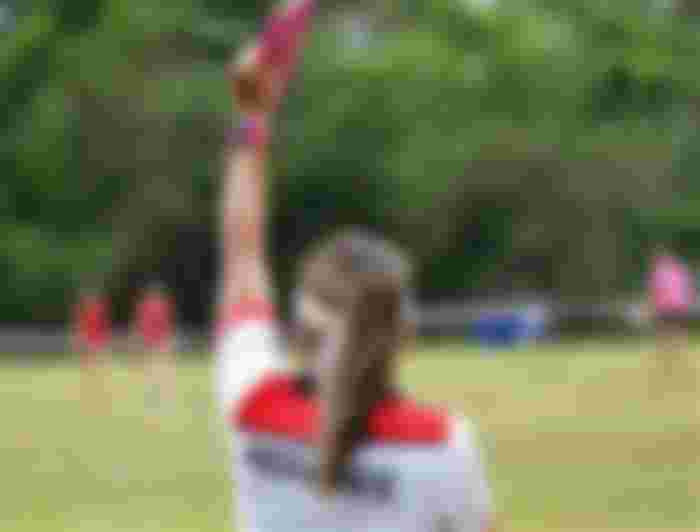It is he that wears the shoe that knows where it pinches - Nigerian Proverb
It's not a goal, it's not a goal, it's a handball, it's a free kick, it's a goal, clean goal!.....
Are you confused just yet? You should be. This was the chaos that ensued during one of the very few controversial moments in the football match I refereed three days ago. Still isn't making sense? Let me give you the background story.
In my university, any agriculture-related programme runs for a period of five years. So, in my faculty ( faculty of agriculture, University of Benin ), we have twelve approved departments, but only six operational ones due to limited space, resources and funding. So the six operational ones are as follows, Department of Aquaculture and Fisheries Management, department of soil science and land management, department of crop science and crop protection, department of animal science and production, department of forestry and wildlife and my least favorite, department of agricultural economics and extension.
All of these programmes are two in one due to limited resources like I said before, but during the fifth year, we are made to choose our degree options, so it's still seem like the twelve approved departments are functional.
So, during the fourth year of study, we embark on field practical training for the entire session, regardless of the department as long as it is,from faculty of agriculture. Field practical training is about getting hands-on practical experience of all we have been learning in the three preceding years.

So, every 400Level class, also casually called FPT ( field practical training ) class, usually organizes a football tournament where the six departments play against each other using any format they do agree on. This year we decided that each team will play two matches, from there, the top four will advance to the semi-final and so on. So, my department had its first match against the department of agricultural economics and extension team on Monday and it ended a 0 - 0 scoreline.
Other matches had been played before Wednesday; been yesterday but the AEE team was having their second match that Wednesday afternoon and I was to officiate the match. A loss for them would effectively leave their chance to advance in the hands of my team, which is not a good place to be, seeing as we are quite the underdogs.
So, on the chosen day, I tried to be as impartial and careful as I could do as not to come across as trying to manipulate the outcome to remove pressure from my team that will be playing later today. But as much as I tried, a few light controversies were still trying to pop their ugly head and I kept managing the situation until a very uncomfortable and uneasy one arose. The thing was, there had been a tussle for the ball between the ANS team's striker and the AEE goalie and it resulted in the ball going into the net.

My view of the whole situation wasn't quite clear. While the ANS were claiming it was a goal, the AEE team contested that it was a handful that got the ball over the line. A goal against the AEE team would help my team someway, so I had to resolve the situation without seeming partial. I did eventually call the goal, after properly scrutinizing the situation as much as I could and it would happen to be the decider of the match.
So, what's the big deal?
After I got home that day, I kept thinking about the whole thing and it dawned on me how easy it is to make decisions when you are actually not responsible for them, how easy it is to come up with what we assume are the right calls when there's someone else at the helm of affairs. It funny to see us trivialize the effort of our leaders, and bastardize their decisions, thinking we know better when we are simply on the outside and do not even understand the half of the situation.
I kept thinking how easy it was for the people outside the field and the players in the field (whose conclusion wouldn't matter) to come to a what they thought was a definite and the true conclusion, even though they were asking different as their faces were different. Myself on the other hand, who had the responsibility and power to make a binding decision found it hard to conclude. The question I asked myself was why?
Why?
The truth I learnt that day was that it's so easy to criticize people from the outside when we don't even know half the things that go into the decision making process of people who are on the inside and charged with making these decisions. We fault our leaders and see almost only the wrong they do, without knowing the limitations they face and have to deal with why trying to make the best decisions for everyone.
This evening became clearer when I remembered that just before the match I officiated, I was seeing so many wrong with the decisions of the referee officiating the match player before the one I officiated, but when I had the job, I made more than half of all the mistakes he made while I was sitting there and crucifying him. The interesting part is, at the moment of making those calls in the field, I was 100% convinced it was the right call and it was then it seemed on me that the last official did do his best and was also truly convinced he was making the right call.
Conclusion
It is often said in Nigeria that "it is he that wears the shoe that knows where it pinches". The simple translation is that "you will never fully understand a thing until you are in a position to experience it"; " you will never understand the rationale behind a decision until you face those same circumstances and have to do the decision making".
Bottom line is, why we ought to check our leaders, because that's the chief feature of democracy, we ought to have empathy and be kind in our ways of doing it. We should try to be as informed about a situation as possible, before we criticize people, and if we have to, we should do something constructively.
Thanks for always reading my articles. I love you guys


Being a leader it's not an easy task. A man should know that before venting to be a leader. Not just because of the money involve .